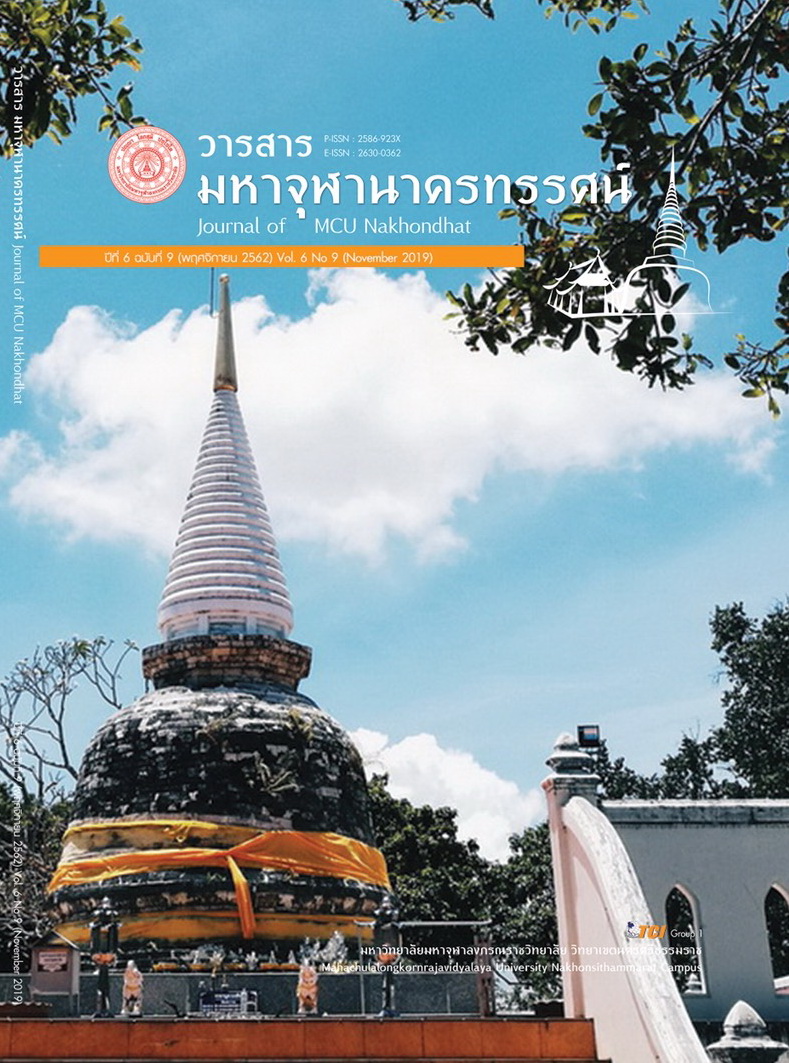FACTORS TO CREATE A PROFESSIONAL LEARNING COMMUNITY OF NURSING INSTRUCTORS
Main Article Content
Abstract
A professional learning community (PLC) that is a core of learning model is a process of change according to the practice of teachers who work together and support each other. The objective is to present the concept of a professional learning community and ways of self-development through the learning community in order to develop nursing instructors to be able to manage learning efficiently. This project had presented the changing of PLC in nursing instructors following the literature and synthetic reviews into three factors: 1) a supportive by the administrator; 2) positive communication of members, and 3) knowledge management by the meeting. Meanwhile, a learning management model to create the professional learning community included 1) coaching & mentoring 2) reflecting, 3) collaborative learning, 4) resulted of practice evaluating, and 5) technology for educational quality development of learning by distance learning.
Article Details
References
ธนพร สำลี. (2559). การทบทวนผลการปฏิบัติงาน (After Action Review). เรียกใช้เมื่อ 6 เมษายน 2562 จาก https://www.nstda.or.th/th/nstda-knowledge/144-km-knowledge/3282-after-action-review
ธีระเกียรติ เจริญเศรษฐศิลป์. (2560). นโยบายชุมชนแห่งการเรียนรู้. เรียกใช้เมื่อ 2 มีนาคม 2562 จาก https://www.moe.go.th/mobile1/viewNews.php?nCatId=news_act & moe_mod_news
ประวิต เอราวรรณ์. (2559). เรียนรู้จากการปฏิบัติจริง. เรียกใช้เมื่อ 21 มิถุนายน 2562 จาก https://www.ires.or.th/?p=804
ปริวิทย์ ไวทยาชีวะ. (2558). อาจารย์มหาวิทยาลัยกับการเป็นพี่เลี้ยง : จุดเริ่มต้นเพื่อพัฒนาทักษะแห่งศตวรรษที่ 21. ใน คู่มืออาจารย์ด้านการสอน. สำนักพัฒนาคุณภาพการศึกษา มหาวิทยาลัยเชียงใหม่. เรียกใช้เมื่อ 21 มิถุนายน 2562 จาก https://www.ires.or.th/?p=804
เพลินตา พรหมบัวศรี และคณะ. (2559). รูปแบบการศึกษาบูรณาการชุมชนแห่งการเรียนรู้เชิงวิชาชีพ การโค้ช การสะท้อนคิดและการใช้พลังคำถาม วิทยาลัยพยาบาลสถาบันพระบรมราชชนก. วารสารพยาบาลกระทรวงสาธารณสุข, 27(1), 60-72.
มกราพันธุ์ จูฑะรสก. (2560). การสะท้อนเส้นทางการปฏิรูปกระบวนการเรียนรู้จิตบริการ ด้วยหัวใจความเป็นมนุษย์ภายใต้ระบบครอบครัวเสมือนสู่คณะปฏิบัติการไร้พรมแดนปัญญาปฏิบัติ. วารสารพยาบาลกระทรวงสาธารณสุข, 27(2), 31-45.
วิจารณ์ พาณิชย์. (2555). วิถีสร้างการเรียนรู้เพื่อศิษย์ในศตวรรษที่ 21. กรุงเทพมหานคร: ตถาตา.
สำนักงานเขตพื้นที่การศึกษามัธยมศึกษา เขต 31. (2559). โครงการพัฒนาคุณภาพการศึกษาด้วยเทคโนโลยีสารสนเทศ. เรียกใช้เมื่อ 24 มีนาคม 2562 จาก https://dlit.suratham.ac.th/dlit_mean
สำนักงานคณะกรรมการการอุดมศึกษา. (2558). คู่มือการประกันคุณภาพการศึกษาภายในระดับอุดมศึกษา. กรุงเทพมหานคร: ภาพพิมพ์.
DOPA KM team. (2559). การจัดการความรู้ (KM tools) ซึ่งเป็นTacit knowledge หรือความรู้ที่อยู่ในตัวบุคคล ซึ่งซ่อนเร้นอยู่ภายใน. Retrieved มีนาคม 19, 2562, from https://www.thaiall.com/km/indexo.html
DuFour. (2007). Professional Learning Communities: A Bandwagon, an Idea Worth Considering, or Our Best Hope for High Levels of Learning. Middle School Journal, 39(1), 4-8.
Hord, S. M. et al. (2009). Guiding Professional Learning Communities: Inspiration, Challenge, Surprise, and Meaning. UK : Corwin Press.
Pirtle, S.S. & Tobia, E. (2014). Implementing Effective Professional Learning Communities. SEDL insights. 2(3). Retrieved April 20, 2017, from https://www.sedl.org/ insights/2-3/implementing_effective_professional learning_communities.pdf.


